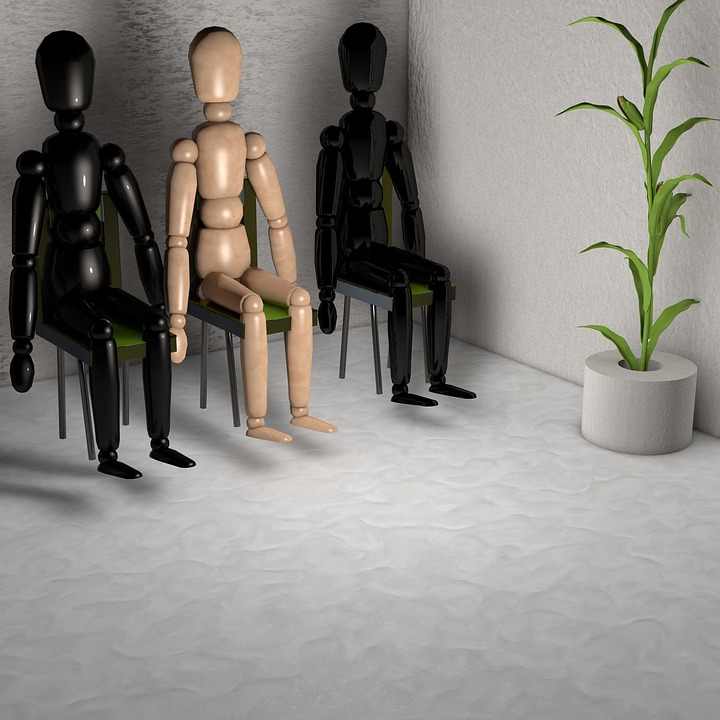Having a newborn child can be a rewarding and joyful experience. But, some new parents might experience the “baby blues,” in which feelings of unexpected stress, anxiety, and guilt dawn over them.
Until recently, this “baby blues” has been thought of as a strictly female phenomenon as they are the child bearers. While it may be more common for new mothers to feel symptoms of postpartum depression, new fathers are also susceptible to this depressive state.
If we look at the numbers, postpartum depression in males is actually fairly common. A meta-analysis of studies done in 2010 estimates that 10.4% of males experience depression after having a newborn. And, this may be as high as 25.6% in the 3- to 6-month postpartum period.
Why Do Fathers Experience “Daddy Baby Blues?”
Most people know why mothers experience postpartum depression. Their hormones change a lot during and after pregnancy, naturally making it tough to adapt post-childbirth.
But, there is a lot of evidence pointing to the fact that males experience a change in hormones as well. Studies show that, following the birth of a child, males might experience a decrease in testosterone. This lowered testosterone can, in turn, lower serotonin levels and other neurotransmitters that cause symptoms of depression.
It’s thought that a father’s testosterone levels may reflect bonding and caregiving, which can be related to the mother’s and, in turn, the family’s overall well-being. What is interesting is that fathers with lower testosterone typically report higher levels of depression. But, mothers who had a partner with a higher-than-normal level of testosterone reported more depressive symptoms.
Fathers with higher testosterone levels might feel greater stress from their partner — which can then cause relationship dissatisfaction, hence depression in those fathers as well.
So, it seems there is a sweet spot, between levels of testosterone and symptoms of depression. And the most important factor here may be familial satisfaction of bonding and caregiving.
However, there are more than just hormones at play here, of course. There are other factors at play that may be present before, during, or after the birth of a newborn that can lead to a father’s depression.
Non-hormonal factors that may cause postpartum depression include:
- Previous history of anxiety or depression
- Other mental illnesses, especially substance use disorders
- Lack of social support
- Provider pressure
- Financial troubles
- Having a child at a young age
- Guilt
- Lack of sleep
- Postpartum depression in the mother of the child
- Mother-Father relationship conditions
- Seperated living conditions between mother and child
What Male Postpartum Depression Looks Like
Depression isn’t always so obvious, and it isn’t expressed in the same way in everyone going through it.
Some symptoms of male postpartum depression include:
- Feeling hopeless and sad
- Frusteration and discouragement
- Irritability or aggression
- Losing interest in previously pleasurable activities
- Social withdrawal from family or friends
- Excessive worrying or guilt
- Restlessness or workaholic behavior
- Trouble sleeping
Tips for Dealing with the Daddy Baby Blues
Men might be prone to shrugging off symptoms of depression and “toughing it out.” But, it is important to acknowledge symptoms of depression and deal with them accordingly.
Here are a few simple tips to dealing with depression as a new father:
- Rest well — yes, this is simpler said than done. But sleep is important to be your happiest.
- Eat well — eating nutritious foods can help maintain your mental health.
- Exercise — getting your blood flowing and heart beating can increase levels of happy neurotransmitters in your brain.
- Avoid addictive and reckless behaviors — such as substance abuse or gambling.
- Express your feelings — let it out; tell your spouse, your parents, your siblings, or friends how you feel through these trying times.
If you’ve got time, check out our 3 lifestyle changes for better mental health!
Final Thoughts
Men are susceptible to postpartum depression, though at lower rates than women are. Depression is often a complex illness with a complex network of causes. And, sometimes having a child is one life event that may push a person past the threshold into a depressive state.
Hormones, of course, are a big factor at play here. Even though women are far more affected in this realm, there seems to be a somewhat symbiotic hormonal and emotional relationship between mother and father that should be nurtured.
Regardless of gender, it is important to address symptoms of depression in a serious manner — and to do so sooner than later. Emotional distress is not something to be taken lightly.
Take the proper steps to take care of your mental health. And, there is no shame in looking for professional help when it’s needed.
If you are in the San Diego area and looking for an experienced psychiatrist or therapist, look no further than Solara Mental Health. Call 844-206-9722 to talk to a specialist today!
Sources
- Cleveland Clinic (Ed.). (2019, September 16). Yes, Postpartum Depression in Men Is Very Real. Retrieved November 22, 2021, from https://health.clevelandclinic.org/yes-postpartum-depression-in-men-is-very-real/
- MU Health Care (Ed.). (n.d.). Can Men Suffer from Postpartum Depression? Retrieved November 22, 2021, from https://www.muhealth.org/our-stories/can-men-suffer-postpartum-depression
- Paulson JF, Bazemore SD. Prenatal and Postpartum Depression in Fathers and Its Association With Maternal Depression: A Meta-analysis. JAMA. 2010;303(19):1961–1969. doi:10.1001/jama.2010.605
- Saxbe DE, Schetter CD, Simon CD, Adam EK, Shalowitz MU. High paternal testosterone may protect against postpartum depressive symptoms in fathers, but confer risk to mothers and children. Horm Behav. 2017 Sep;95:103-112. doi: 10.1016/j.yhbeh.2017.07.014. Epub 2017 Aug 31. PMID: 28757312.
















